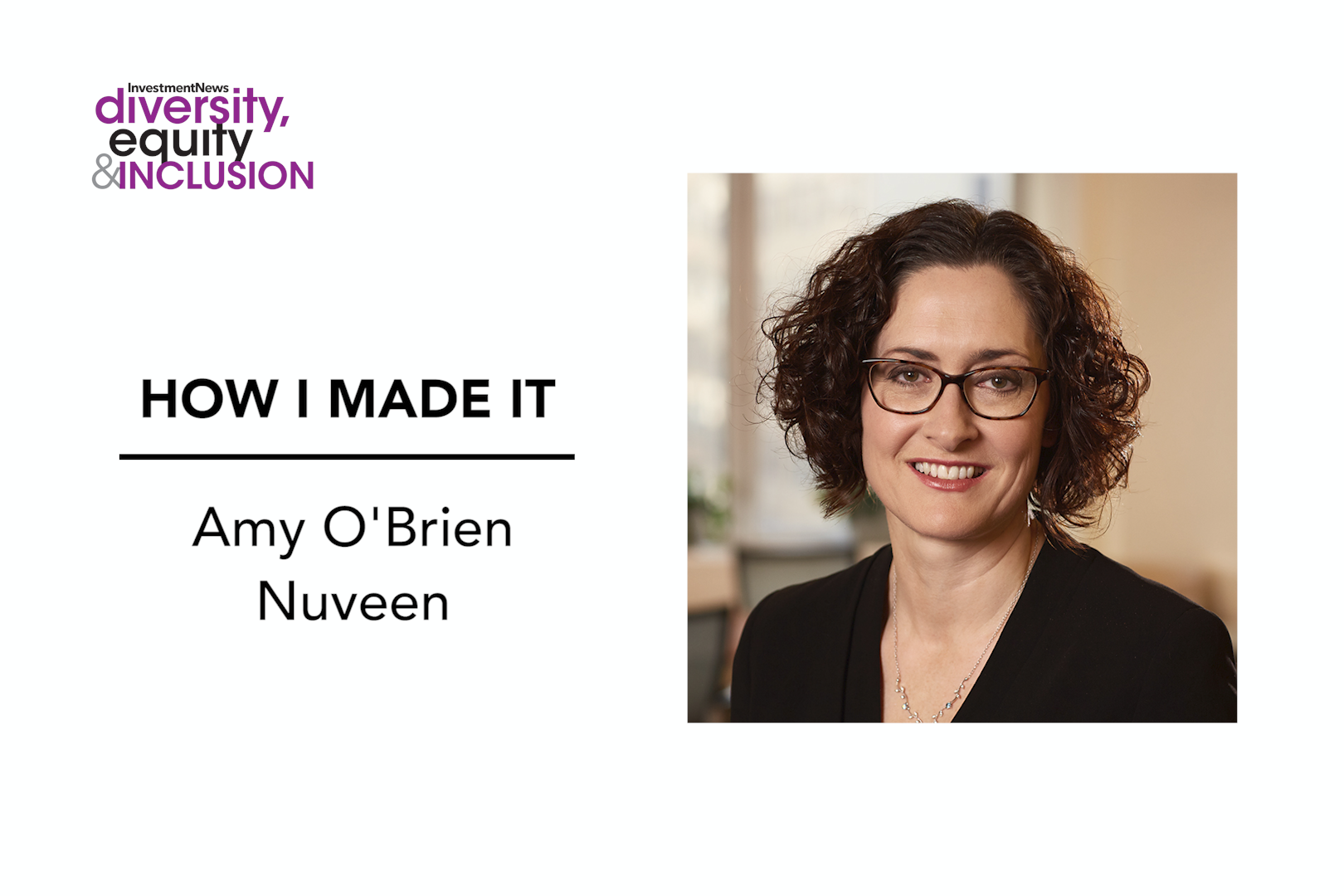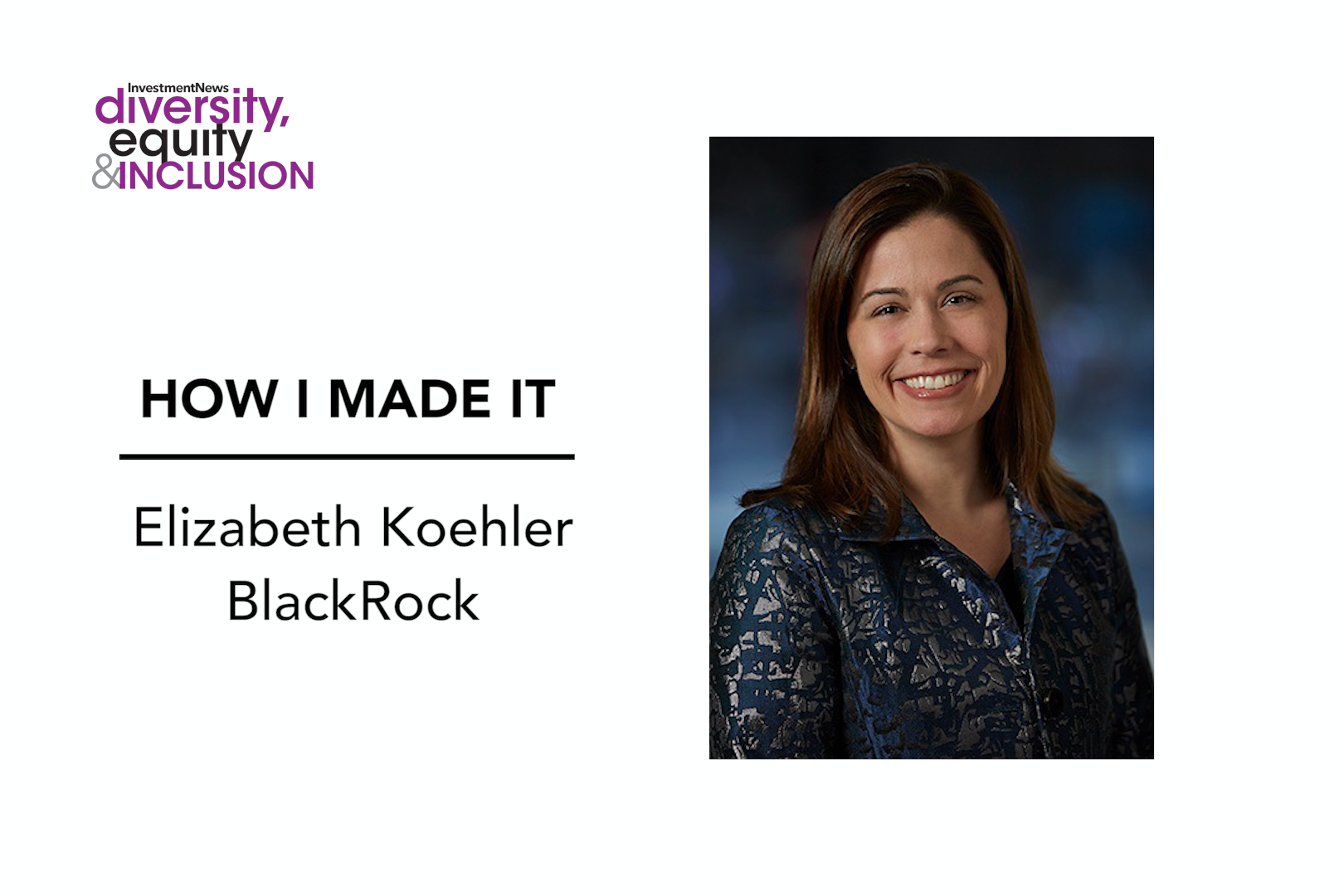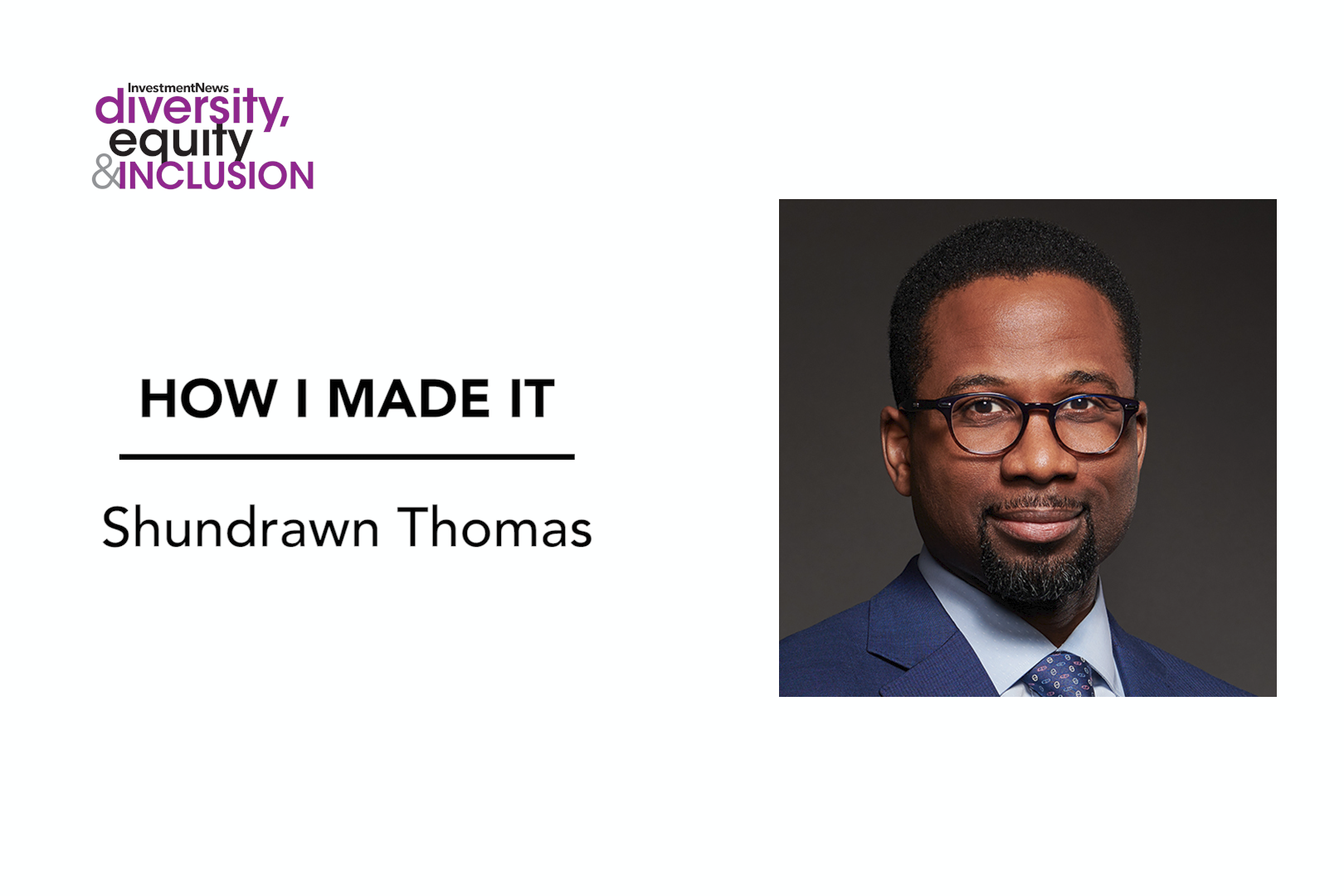The importance of having confidence in yourself
While women in the workplace may struggle with being perceived as too nice or not nice enough, Elizabeth Koehler, a managing director at BlackRock, says the key is to have confidence in both one’s abilities and style.
Elizabeth Koelher [00:00:07] First, thank you to InvestmentNews and to women and asset management, I am honored to be here, and my 19 year career in asset management has been marked by new and challenging opportunities past to personal and professional growth, and wonderful colleagues. But when I think about my own biggest challenge may be to being successful in financial services I would say it could be balancing this label of sometimes: Liz a very nice. But also proving that I can be effective and get results.
And I think many women actually struggle with this balance.
Maybe it’s appearing too nice or not nice enough, and unfortunately that can impact others perception of us and our ability to lead.
But I also really like the quote: Don’t mistake my kindness for weakness. Because the good news is that women can be truly transformational leaders, inspiring, decisive, active listeners, creative problem solvers while bringing others along for the journey, and this can lead to more sustained success. You may have seen the recent Forbes article this year stating that empathy is the single most important quality that leaders have today.
So over time, I’ve learned how important it is to have confidence in my abilities and my style and do my work in my own authentic way. And yes, I believe at my core that I can be both successful and kind.
And sure, it may seem like the longer path sometimes, but in my experience, it has always led to better results.
Yes, we’ve seen the power and the positive impact of bringing more diversity to our industry, and I’m energized about where we’re going in the future, especially as more people step up to be advocates to diverse individuals.
And being an advocate means putting yourself out there for others, right? Setting out to make a difference in lives and careers, walking the walk.
So what are two things that I believe that Advocate can do?
First, simply reach out and have the conversation, and then second, keep the advocacy going through encouragement and support.
So first, I believe we all need to choose a person or a group and simply reach out, make connections, volunteer our time, build confidence and demystify the experience. I believe so much of this is done in the informal meet up, the coffee conversations, the phone calls. When we encourage others that can absolutely succeed in financial services, and we share our own experiences and vulnerabilities, we draw them in and we build them up. We can help people connect the dots between their own strengths and and what the industry can provide, which, by the way, includes changing the financial futures for billions of people across the world.
And second, it doesn’t stop once we’ve gotten individuals into our industry, we need to keep modeling these leadership behaviors.
I remember a time early in my career when a leader came to me and asked me to take on a new role, something that I hadn’t done before, and it felt big and imposter syndrome started to creep in. And I remember feeling unsure and asking that leader. I don’t know if I’m ready for this. Are you sure? And that leader looked at me and smiled and said, I have all the faith in the world and you and you’re going to prove it to yourself.
And finally, being an advocate doesn’t always have to be some grand gesture, sometimes it’s it’s the choices that we make each and every day. Sometimes it’s simply recommending someone for a special project or encouraging someone to share their views, especially when they feel they may not have a voice.
Another leader who is also well respected, I remember, would would make it a point to pause a large meeting to stop and say, Liz, you’ve been doing a lot of work in this area. What do you think?
It’s all of these actions as leaders that make a difference in the confidence level of our colleagues and grow future leaders.
I would say there are three things I might recommend to young professionals in financial services today.
First is prototype and take that next small action. And that includes setting up time to have conversations, whether it’s with others in your company, your alumni network or in the industry. It is amazing how just one conversation can lead to a new idea or a new connection that can uncover real opportunities as a member. People want to engage.
Number two, stay intellectually curious. When in doubt, read that next article that next book scan the financial news and it’s okay if you have to look up the meaning of a few words. The more you can learn about the industry market trends and what our clients are looking for, the more valuable you are to them, but also the more energy and momentum you start to build for yourself and you zoom out your perspective.
And finally believe in yourself. Each day take a little bit of time to reflect on what you did well today. It’s so easy for all of us sometimes to get caught up in what we didn’t accomplish, but at the end of the day, your contributions are really adding up over time. You’re learning and you’re leading.
So stay true to your own self, your own style, and celebrate those contributions, you’re securing better futures for people.
And just ending where I started, being authentic, we know, is like building the strongest teams and bringing a new perspective to the table. It’s what our clients today are looking for, frankly, what they’re demanding. So let’s embrace what matters most when we combine our values with our authentic strength. I truly believe the sky is the limit.



